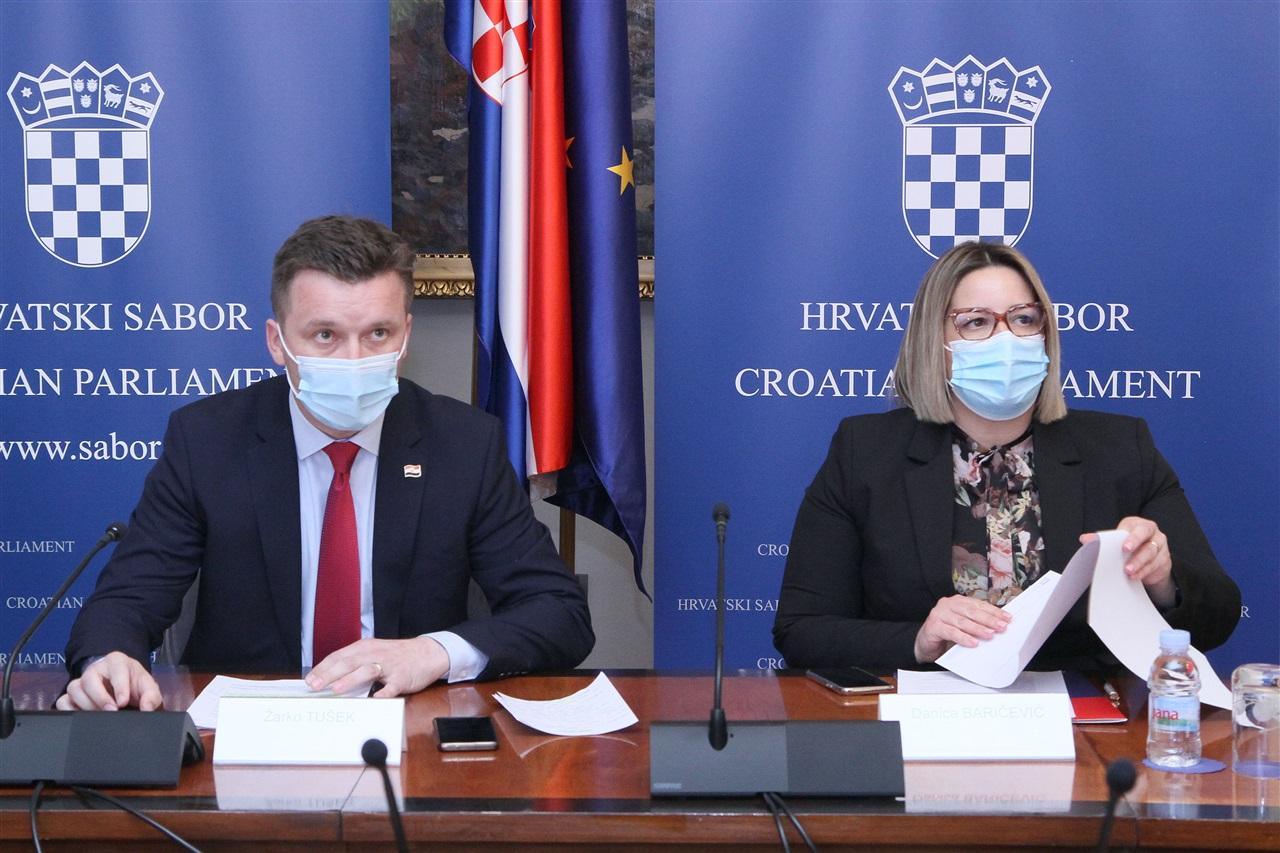
Zagreb - Chairman of the Committee on the Economy Žarko Tušek and Committee Member Danica Baričević hosted an inter-parliamentary videoconference on the economic aspects of European integration. The conference was attended by the parliaments of Hungary, Austria and Bosnia and Herzegovina.
This was the third in a series of conferences organized within the framework of the Twinning Project “Empowerment and further support to the Parliaments of Bosnia and Herzegovina in EU integration tasks”, very successfully implemented by a consortium composed of three EU member states parliaments – Hungary, Croatia and Austria.
The meeting discussed the green transition, the European Union's Economic and Investment Plan for the Western Balkans and the Green Agenda for the Western Balkans as a strategic opportunity for growth, as well as a tool for intensifying the process of accession to the European Union. All conference participants agreed that these topics were to impact all segments of our lives in the future and that the “green criteria” represented an opportunity for new economic momentum. The conference underlined the interest in fundamentally transforming the way we produce, consume and live in order to be able to continue using natural resources to our benefit.
Committee Chairman Tušek pointed out that European policies could only be effective if implemented globally and in a coordinated manner. It is especially important that the EU's closest neighbours participate in these policies, he added. He emphasized the European Union's commitment to this topic and to the Western Balkan region, which is reflected in the Economic and Investment Plan for the Western Balkans.
Member of the Committee on the Economy Danica Baričević pointed out that Croatia was the only EU member state bordering Bosnia and Herzegovina and that Croatia's strategic interest was to have a stable, secure and prosperous neighbour. She also referred to the Foreign Affairs Council held in Brussels on March 22, 2021, where the Minister of Foreign and European Affairs of the Republic of Croatia Gordan Grlić Radman presented Croatia's initiative on Bosnia and Herzegovina, i.e. the "non-paper" co-signed by Slovenia, Hungary, Greece, Cyprus and Bulgaria, all in order to give the political issues of Bosnia and Herzegovina the attention they deserve and to encourage progress in all those areas that are important for the country to achieve candidate status as soon as possible.
In conclusion, Tušek underlined Croatia’s strong support to the European path of Bosnia and Herzegovina, the neighbouring country to which it is bound by unbreakable ties. Acquiring candidate status is of the utmost importance for Bosnia and Herzegovina, and meeting the 14 priorities set out in the European Commission's Opinion is the right path to that status. He welcomed all the efforts that Bosnia and Herzegovina is making in this respect and stressed Croatia’s readiness to share its experiences and continue to strengthen cooperation in all fields, underlining the particularly great cooperation potential of green policy projects.